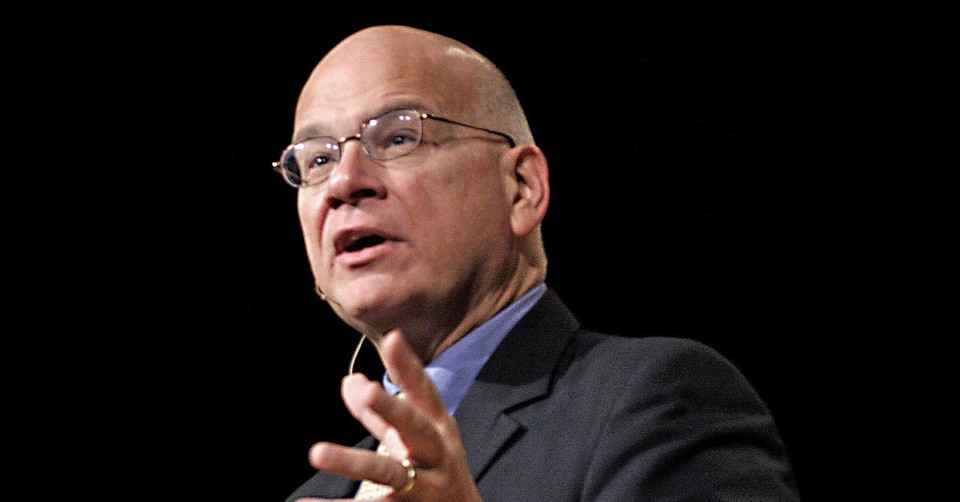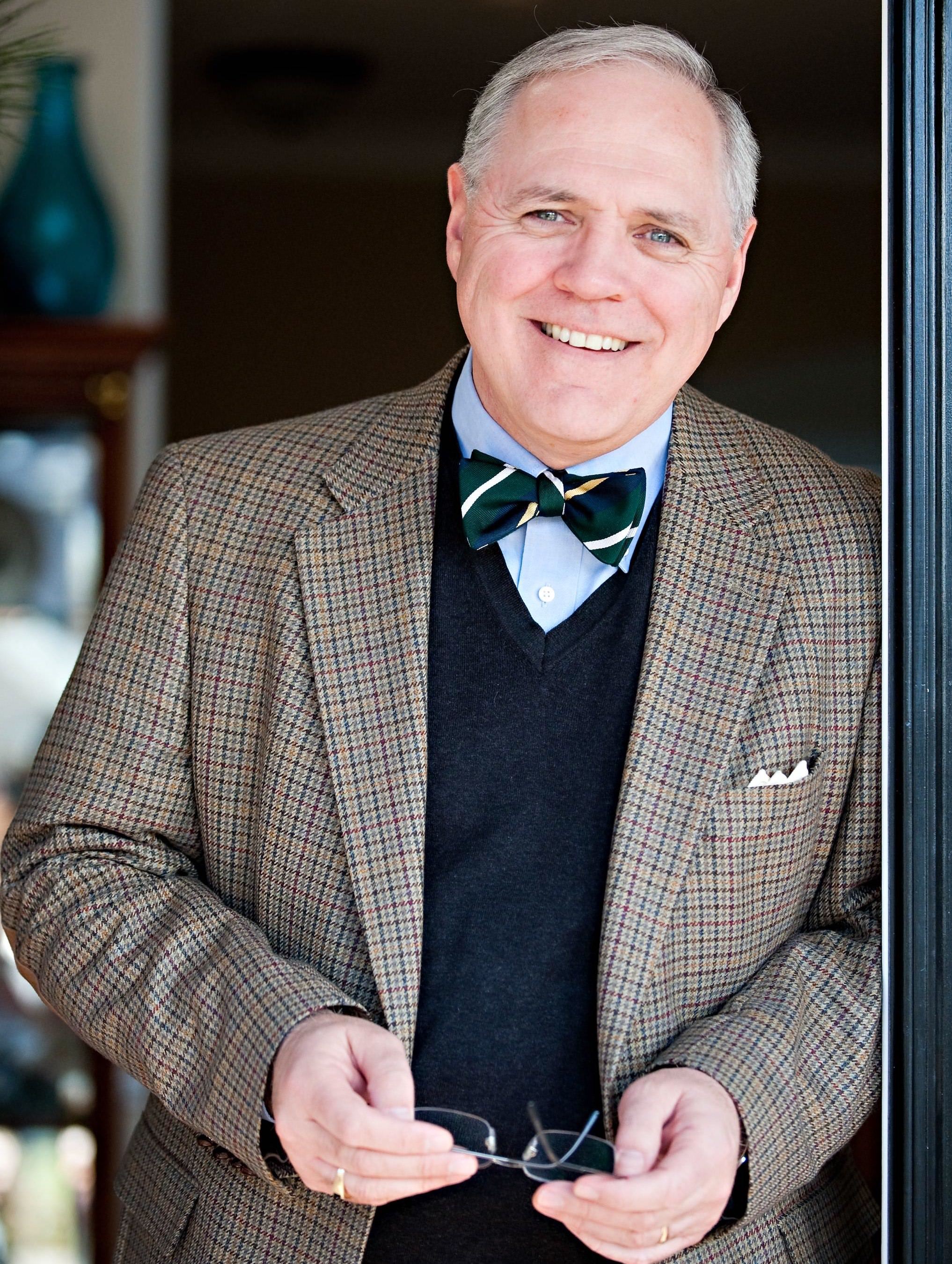3 Encouragements from Tim Keller's Life for the Church

Tim Keller is with the Lord. Tim was a friend and a colleague, and I write in part from that experience. However, I think I feel what others do at times like these. When a prominent leader of the Church dies, an unexpected and surprising sorrow rises within us. It is a loss, yes, but it must be more. Perhaps, the passing of certain Christian shepherds evokes theological reflection and even self-evaluation. As Dr. Keller has passed from this life to be with the One he preached so well and for so long, we can locate a legacy, a legacy that is ours in Christ.
Here Are 3 Encouraging Truths That Are Tim Keller’s Legacy to the Church:
1. Seek the Welfare of the City
Tim seemed a natural for New York. But was he? I don’t think so. I believe that Tim Keller was supernaturally prepared and called to the city. Tim had been an academic, a professor at Westminster Theological Seminary, when he was led to plant a church in NYC. Before his professorship, Dr. Keller was pastor of a humble church in small-town Virginia. Yet, his prayer life, his studies, and his insights led him to see the critical contemporary significance of Jeremiah’s charge to the Jews in Babylon:
"Seek the welfare of the city where I have sent you into exile, and pray to the LORD on its behalf, for in its welfare you will find your welfare." (Jeremiah 29:7, ESV)
Tim loved NYC (and some great metropolitan areas of the world, for he developed church planting networks from Berlin to Beijing) because Tim knew God loved the people in that city. The people of New York needed the gospel. Rather than focus on building a Christian community castle with the gates closed to the world, Tim wanted to be out and among the lost. That is why he never had a vision for a building. He was called to a movement. He was summoned by a Savior to pray for and work for revival in the city. As the nation began spiraling downward into a veritable free-fall into “a secular age,” Tim saw America’s largest city—a center of commerce and art, of incomparable wealth and gut-wrenching poverty, of tepid faith and no faith at all—as the place where Christ should be preached. Jeremiah 29:7 and “seek the welfare of the city” is even more important now, for the Western nations have gone further down that vortex of unbelief. Rather than retreat, however, we must charge into the fray. Trust our God who was with the saints in Babylon, the believers in Rome, and now, the faithful in the dystopian ruins of Postmodernity.
I learned another truth from Tim that bears remembering and sharing:
2. Celebrate the Work of Our Hands
What do I mean? Consider Psalm 90:16-17: “And let the beauty of the Lord our God be upon us: and establish thou the work of our hands upon us; yea, the work of our hands, establish thou it” (KJV). It is not a coincidence that God’s Word not only gives the lineage of the patriarchs but chronicles (we could, indeed, justifiably say “celebrates”) the creativity and industry of work.
In the Book of Genesis, several passages mention individuals who were the “patrons” of types of work:
- Jubal, the Father of Music: "And his brother's name was Jubal; he was the father of all those who play the lyre and pipe." (Genesis 4:21, ESV)
- Tubal-cain, the Father of Metalworking: "Tubal-cain, who forged all kinds of tools out of bronze and iron." (Genesis 4:22, ESV).
- Jabal, the Father of Herdsmen and Ranchers: Adah bore Jabal; he was the father of those who dwell in tents and have livestock." (Genesis 4:20, ESV)
Tim Keller celebrated God’s creative calling to work. From doctors to dancers, actors to actuaries, homemakers to historians, and policemen to playwrights, Tim Keller recognized the evangelistic value of work. He encouraged the natural associations that create bridges over which one can walk to share Christ. In doing so, he honored the life of labor as a gift from God. Tim encouraged the formation of professional Christian coalitions in the city. Through these societies, workers could reach out to others in their professions, inviting them to study the Scriptures. Many were saved as a result. And, maintaining the Calvinistic-Reformational commitment of Keller, everyday labor was exalted as meaningful and as “sacred” to God as being a missionary.
As we journey deeper into a post-Christian world, we can follow Tim Keller’s biblical lead and use “the work of our hands” as a common human experience through which we communicate the glory of God.
Finally, I believe Tim Keller’s legacy is this:
3. Center the Christian Community on God’s Grace in Jesus Christ
I believe that Dr. Tim Keller’s greatest contribution to the Church is his carefully crafted messages that always lead back to this central, glorious theological truth:
Jesus Christ lived the life that we couldn’t live and died the death that should have been ours. We may receive the benefits of Christ’s life and death through repentance and faith by grace, by grace, by grace. At the cross, Jesus got our sins, and we got His life. The primacy of God’s grace in Christ Jesus is the predominant motif of the Christian life and is as transformative in law as in literature. In other words, grace works.
Tim pointed the Body of Christ past the landmines of potential preclusions, of secondary and tertiary convictions that keep us from the main truth: God is a God of grace who revealed His grace through our Lord Jesus Christ. Thus, Paul writes, “For it is by grace you have been saved, through faith—and this is not from yourselves, it is the gift of God—not by works, so that no one can boast” (Ephesians 2:8-9; see the BibleStudyTools.com page on “Grace:”
At last, this magnificent truth, this priceless pearl of the gospel, was not only the great message of Tim Keller, the ultimate legacy of faith that he bequeathed to the Church but was the anchor of the man’s soul. It was an anchor that held as the wintry winds of suffering and death approached. At length, Tim Keller’s theology, like St. Paul’s, became his biography:
“But he said to me, ‘My grace is sufficient for you, for my power is made perfect in weakness.’ Therefore, I will boast all the more gladly about my weaknesses, so that Christ’s power may rest on me’” (2 Corinthians 12:8-9).
Tim is with Christ. We pray for Kathy and the family. We pray for Redeemer Church and the millions of people around the world who will be safe in the arms of Jesus as a result of Tim Keller’s simple, sound, and brilliant message: God’s grace is sufficient.
Soli Deo Gloria.
Photo credit: ©Frank Licorice/Creative Commons, image cropped and resized.

Originally published May 22, 2023.




